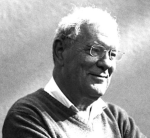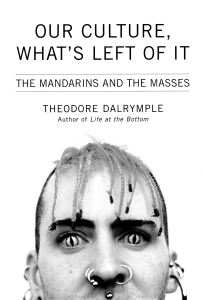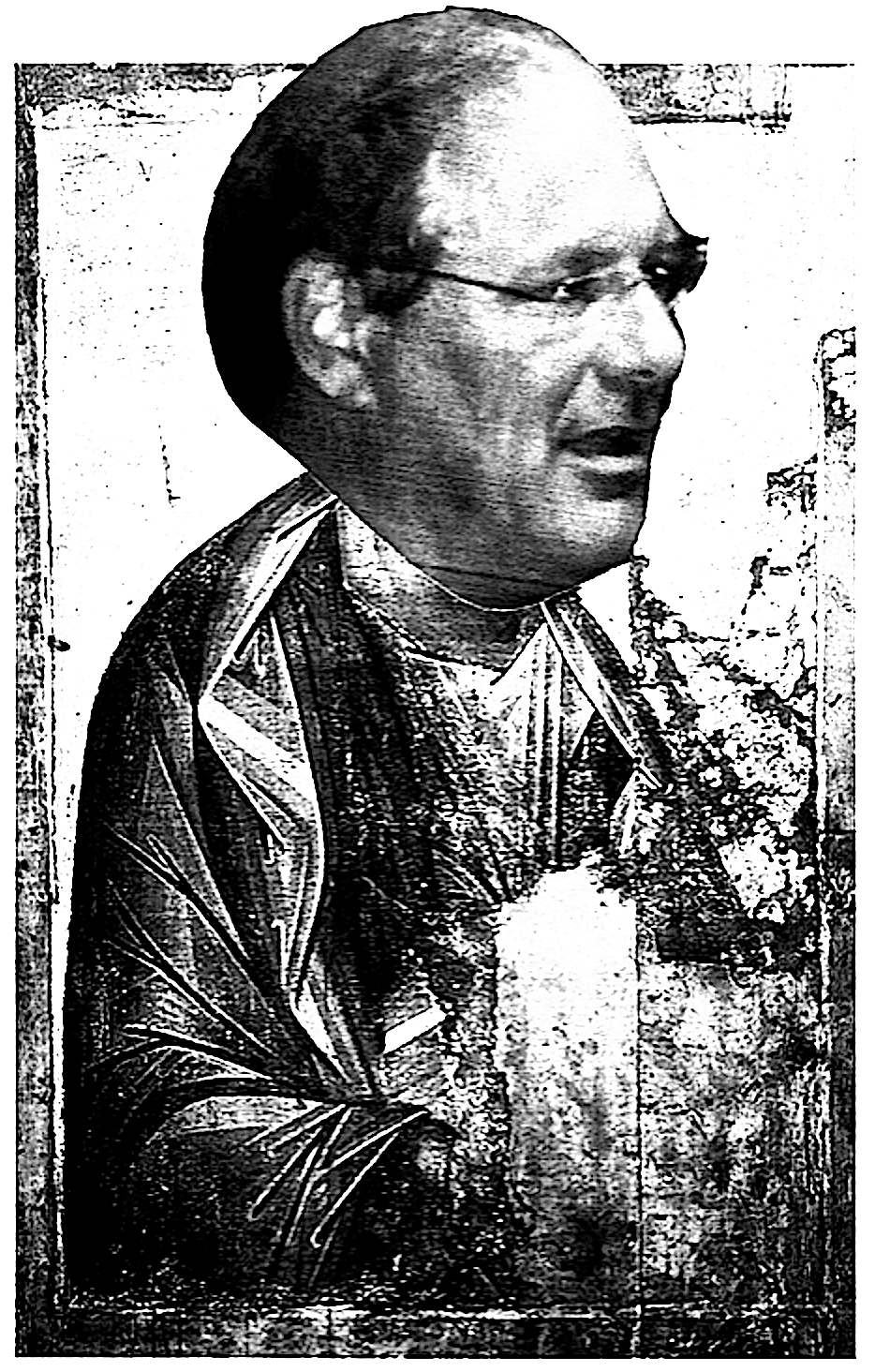 Cretinous iconoclasm
Cretinous iconoclasm
Youth in the West, writes Dalrymple, is deliberately kept from any deeper knowledge of civilisation by the
ideological self-hatred that has been so strong a current of Western intellectual life for the last three or more decades, that precludes any pedagogic affirmation of the Western tradition.
 This self-denigration
This self-denigration
explains in part the kind of hatred (and contempt) that young Muslims feel. Not only does the ideological self-hatred of Western intellectuals prevent them from learning anything of the Western tradition, other than Radio One and McDonald’s, but it supplies them with the tropes with which to justify their pre-existing anger and violence.
 Dalrymple notes that the self-hatred of Western intellectuals
Dalrymple notes that the self-hatred of Western intellectuals
is not genuine or sincere: they do not really want to beat our supermarkets into souks, as swords into ploughshares. Rather, the intellectual’s expression of self-hatred is directed at other Western intellectuals, to prove the self-hater’s broadness of mind, moral superiority and lack of prejudice. It is not only rebellious youth who experience peer pressure; and anyone who pointed out, for example, that for a very long time now the Western medical tradition has been incomparably superior to all other medical traditions in the world combined and multiplied a thousandfold, would forfeit approval, even though what he said was true, and obviously so.
 Barbarism
Barbarism
Insincere ideas can become official orthodoxies, with very real consequences. The Muslims of the West
are hardly to blame if they do not realise that the posturings of our intellectuals are not intended to be taken literally. When Western intellectuals express no admiration for or appreciation of the cultural achievements of their civilisation’s past, when only denigration and iconoclasm appear to advance an intellectual’s career, when moral stature is measured by the vehemence of denunciation of past or present abuses, real or imagined, it is hardly surprising that Muslims conclude that the West is eminently hateful; it must be, because it hates itself. They haven’t heard of Marie Antoinette playing shepherdess.
 The insincere play with fire
The insincere play with fire
Those who claim to hate and despise themselves
will very soon be taken at their word by others, particularly by those who believe themselves to be in possession of an all-embracing creed. Far from promoting reconciliation and tolerance, therefore, multiculturalism breeds contempt, hatred and violence.
No attempt, writes Dalrymple, is ever made to explain the West’s hitherto overwhelming superiority in many fields
except by reference to injustice, exploitation and colonial depredation. That the phenomenal and unique inventiveness of the West might be connected in some way with its long philosophical and cultural development, going back to ancient Greece, is a thought that is never for a moment entertained.
 In the mental world of many young people in the West, and especially Muslims,
In the mental world of many young people in the West, and especially Muslims,
the difference in the wealth of nations is the result of plunder, not invention and innovation, to be redressed by more effective plunder in the opposite direction.
No attempts are made at school to induct young people into the tradition of Western civilisation,
for fear of offending their parents’ cultural sensibilities if they are, say, Muslim; though no more efforts in that direction are made on behalf of kafir youth. Both kafir and Muslims enjoy the fruit without ever knowing the tree. They are like the East End boys of old, who thought that milk came in bottles because they had never seen or heard of cows.



 Leafing through a copy of the New York newspaper the Times, Dalrymple finds France’s World Cup win described as
Leafing through a copy of the New York newspaper the Times, Dalrymple finds France’s World Cup win described as

































